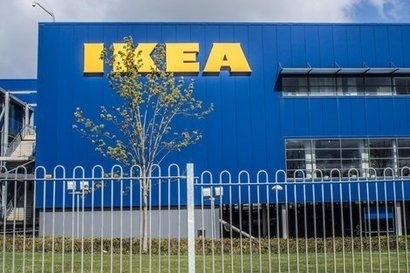
Emeryville is one of two IKEA stores in the San Francisco area where the company is installing a fuel cell system. The project is consistent with the company’s focus on emerging energy technologies but represents the first occasion globally where IKEA is seeking to convert biogas into electricity through a clean electro-chemical process.
The system will be installed, commissioned and activated in summer 2015 and is slightly larger than a commercial back-up generator. The 300 kW system will operate using biogas and generate around 2,497,651 kWh of electricity annually for the store, the equivalent of reducing 1,304 tons of carbon dioxide (CO2). This is equivalent to the emissions produced by 249 cars or the provision of electricity for 163 homes per year. In combination with the solar energy system installed on the store roof in 2011, the fuel cells will help generate more than a majority of the store’s energy onsite.
IKEA contracted with Sunnyvale-based Bloom Energy, a provider of solid oxide fuel cell technology, in order to produce the design for the system.
“Similar to our rooftop solar array, this fuel cell system will reduce greatly our carbon footprint and the store’s reliance on the power grid as well as contribute to our vision of creating a better everyday life for the many” said Pat Choa, store manager at Emeryville.
The investment in fuel cell technology is part of the company’s attempt to become energy independent by 2020 and complements other renewable energy programmes implemented by IKEA across the US, including a solar presence at nearly 90 percent of its locations. The company also has a geothermal heating and cooling system at two of its US stores and two wind farms with a total of 104 turbines.
Globally, IKEA evaluates locations regularly for conservation opportunities, integrating innovative materials into product design and working to maintain sustainable resources. It flat-packs goods for efficient distribution and is a major recycler of waste material. The company also incorporates into its facilities energy-efficient HVAC and lighting systems, recycled construction materials, skylights in warehouse areas and water-conserving restrooms. Plastic bags have been eliminated from IKEA’s check-out process and it has also phased-out the sale of incandescent bulbs, intending to stock only LED by 2016. The chain also has EV charging stations at 13 of its stores with plans to develop more stations at other locations.
For additional information:

